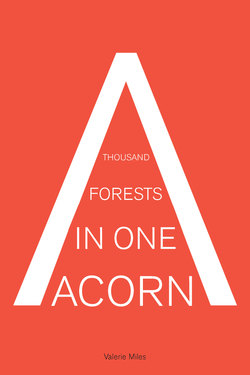Читать книгу A Thousand Forests in One Acorn - Valerie Miles - Страница 36
На сайте Литреса книга снята с продажи.
ОглавлениеTHE ACORN
THE TORTURE OF DOCTOR JOHNSON
For me, “Family Order” is an emblematic story, a culmination of my work from the sixties, my thirties in Paris. Right now I’m writing away from my library and I don’t have the text in front of me, but I write with a renewed, almost painful memory, of the actual process of creating this story and of the place: a more or less dilapidated apartment that reminded me of my childhood home, with garlands hanging from the ceilings and wrought iron balconies opening out in front of the Eiffel Tower, near where I’m now composing these lines. In the selected pages there are images of slow water, where fish leap in the depths, below overhanging willow branches along the banks. They are mental landscapes, where the troubling waters of profound memory meet the verses of Pablo Neruda’s Residence on Earth (slowly flooded with slow waters), and with the mythical floods of novels like As I Lay Dying by William Faulkner. And it’s a family order threatened by the most intense disorder: that of incest, of extreme marginality, of personal degradation.
The pages taken from my last book, La muerte de Montaigne, are the result of my mature reflection, nurtured over long decades by reading Michel de Montaigne’s essays, among other things, which led me to the construction and invention of Montaigne as a novelistic character. It is the most free writing of Europe’s past, lucid and ludic, and the most inspiring for a contemporary mind. The result is a text of mine, essay-novel (and not novelized essay), which leaves room for resigned meditation and jest, as evidenced by this morning greeting between an illustrious gentleman who, in his final years, married a prostitute: “Good morning, whore. Good morning, cuckold.” In other words, the text emerges from juvenile disorder with a smile; sometimes, with a laugh. Suddenly, with a sneer.
The third is a fragment of dialogue between Fidel Castro and the author: writers confronting power, the reasoning of the State. It’s a political and diplomatic experience condensed in writing, in language. The final salvation of literature? Maybe so. In any case, it is an example of serene, detached, ironic nonfiction, in the middle of the baroque proliferation and the revolution.
IN CONVERSATION WITH THE DEAD
The living dead who speak in our dreams: the Balzac of the short and mysterious novels, from The Unknown Masterpiece to Sarrasine and Louis Lambert; the young Neruda of Residence on Earth; the César Vallejo of Poemas humanas; Montaigne inside and outside his tower, naturally, and Marcel Proust, and the enigmatic Machado de Assis, who wrote in nineteenth-century Rio de Janeiro “with the pen of jest and the ink of melancholy,” among many others. But beyond literature, I spent my childhood and my adolescence in a magical space, the center of Santiago, Chile, of that time, full of stories and storytellers: those of my mother and my maternal grandfather, of father Gana and father Iturrate, of Mariquita Fuentes, who cooked in a heavy wood stove, who moved the plates from the stove with a long hook and who told stories between the underground fire and the smoke coming out of the pans. All of them unknowingly applied Denis Diderot’s maxim: tell stories while you can because the story of life is ending soon.
Could you elaborate a little on Neruda’s influence on your life and on your writing and your time in Paris?
Neruda was a great storyteller, indeed, an exceptional oral narrator, and I enjoyed that a lot; he taught me something and also helped me kill a lot of time. Now I suppose it was time lost and gained. It didn’t influence my writing much: his verse tended toward the solemn and torrential and he started to restrain himself in his final years; from the start, my prose has been economical, brief, miniaturistic, and tended, on the contrary, to swell and grow with maturity. Neruda was a great lover of Paris and I became one too. We met there often and expanded our knowledge together. I remember Pablo when he said: “Jorge is a messenger pigeon.”
CODA
Since your exile in Barcelona you’ve said that literature is created with memory. How did the experience that you recount in Persona non grata affect you throughout your life?
With creative memory, memory that invents. In his surrealist manifestos, André Breton spoke about profound memory, a flow that disappears and reappears, that “allows that which floats to float,” a phrase I used as an epigraph in my first novel, El peso de la noche. My work has been a balanced amalgam of memory and fiction, that sometimes leans more to one side and sometimes more to the other.
I was affected by the experience I tell and the publication of the book that tells it. My worst doubts about true socialism were confirmed with my stay on the island of Cuba between December, 1970 and the end of March 1971. From then on, I’ve not changed my criticism, but deepened it, and since then, I haven’t gone back. The publication caused an immediate, unrelenting ban, in the literary, editorial, and personal. It’s a ban that has taught me many things. The red censorship in the West has been one of the greatest and most profound experiences of my life. But I’ve survived fine, and I notice that the health of my censors from that time, if they are alive, is increasingly precarious.
